At-a-glance: Scottish referendum results
- Published
The votes have been cast, and Scotland has rejected independence.
The key developments so far are summarised here.
There is also up-to-the-minute rolling coverage on the BBC's live referendum page.

The story...
Scotland has voted to stay in the United Kingdom.
All 32 council areas have declared - the "No" side finished with 2,001,926 votes to 1,617,989. Scotland rejected independence by 55% to 45%.
Clackmannanshire was the first at 01:30.
Since then, Orkney, Shetland, the Western Isles, Inverclyde, Renfrewshire, Midlothian, East Lothian, Stirling, Falkirk, Angus, Dumfries & Galloway, East Renfrewshire, Aberdeen, East Dunbartonshire, South Lanarkshire, Perth & Kinross, West Lothian, Scottish Borders, North Ayrshire, South Ayrshire, East Ayrshire, Aberdeenshire, Edinburgh, Argyll & Bute, Fife and Moray and Highland, have, in that order, all voted "No" to independence.
The Fife result, at 06:08, meant that Scotland had officially rejected independence.
The largest of the local authority areas, Glasgow, voted "Yes". Dundee, West Dunbartonshire and North Lanarkshire also voted in favour of independence.
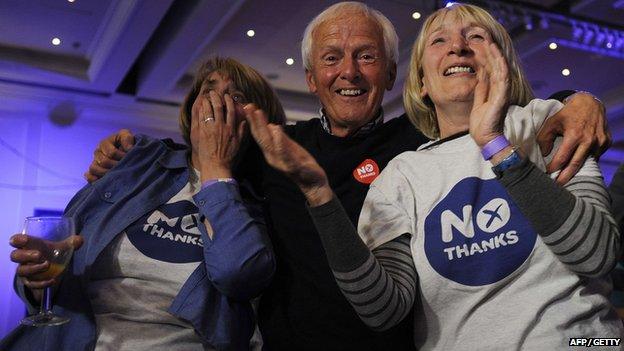
"No" votes were cheered by Better Together supporters
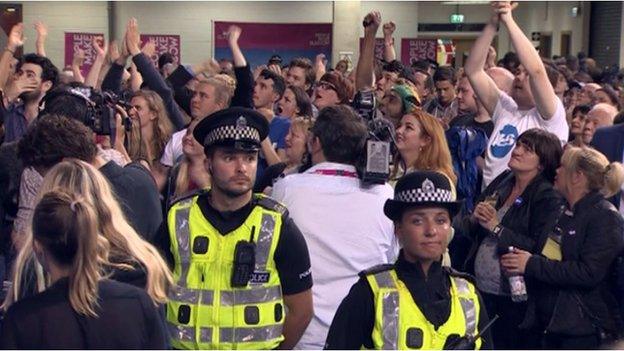
Yes campaigners celebrated victory in Glasgow which is Scotland's largest council area

How many people voted?
In total, 3,619,915 million people voted, making the turnout 84.5%.
Turnout varied from area to area. In East Dunbartonshire, 91% of eligible voters cast a vote. The turnout in Glasgow was 75%, lower than elsewhere.
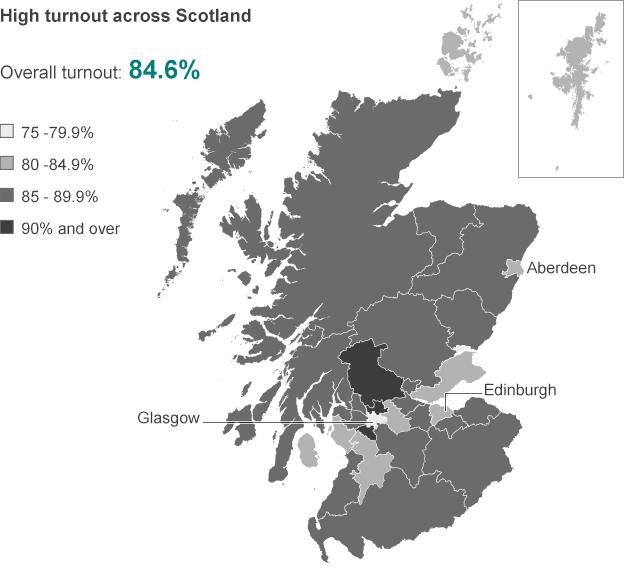
The turnout is a record high for a nationwide vote in Scotland - topping the 81% recorded at the 1951 general election.
However 4,283,392 people - 97% of the electorate - had registered to vote.

How close was the vote?
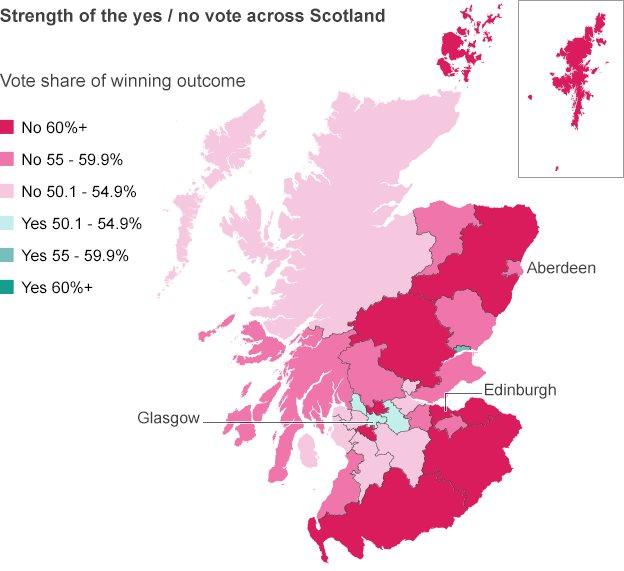
See more of the result in maps.

In quotes
Alex Salmond: "I call on all of Scotland to follow suit in accepting the democratic verdict of the people of Scotland"
Scottish First Minister Alex Salmond said he accepted the verdict and called on Scotland to "accept the democratic verdict of the people of Scotland". He said the referendum process had reflected "enormous credit upon Scotland". "We shall go forward as one nation," he said. He also called on the main unionist parties to make good on their promises of greater powers being devolved to the Scottish Parliament.
Mr Darling said it was a "momentous" result for Scotland and the United kingdom as a whole. "By confirming our place within the Union, we have reaffirmed all that we have in common and the bonds that tie us together. Let them never be broken," he said. Scotland had "chosen unity over division" and "the silent have spoken," he said.
David Cameron: ''Like millions of other people, I am delighted''
Prime Minister David Cameron said: "The people of Scotland have spoken and it is a clear result. They have kept our country of four nations together and like millions of other people I am delighted." He said it was time for the UK "to come together and move forward" with a "balanced settlement" which is fair to Scotland and elsewhere in the UK.
Deputy First Minister Nicola Sturgeon told the BBC the projected result was "a deep personal and political disappointment" but argued that "the country has been changed forever".
Former Socialist MSP Tommy Sheridan, who has been campaigning for a "Yes" vote, told BBC Scotland: "I am feeling almost broken-hearted."

What happens next?
Mr Cameron said the referendum was a chance to change the UK "for the better" and promised to give Scotland more powers in the next Parliament.
In a statement outside Downing Street, he said Lord Smith of Kelvin, chairman of the Glasgow 2014 Commonwealth Games, is to oversee the process of further devolution. Draft laws on new powers will be published by January.
Mr Cameron said a new and fair settlement had to apply to all parts of the UK. He said he had long believed that a crucial missing part was England.
The PM also promised a resolution to the "West Lothian question" which allows Scottish MPs to vote on English issues. The Leader of the Commons William Hague has been asked to draw up plans for what would be a fundamental change at Westminster - if only English MPs could vote on English matters.
The BBC's Royal correspondent Nick Witchell said the Queen was due to issue a written statement on Friday afternoon.

The counts
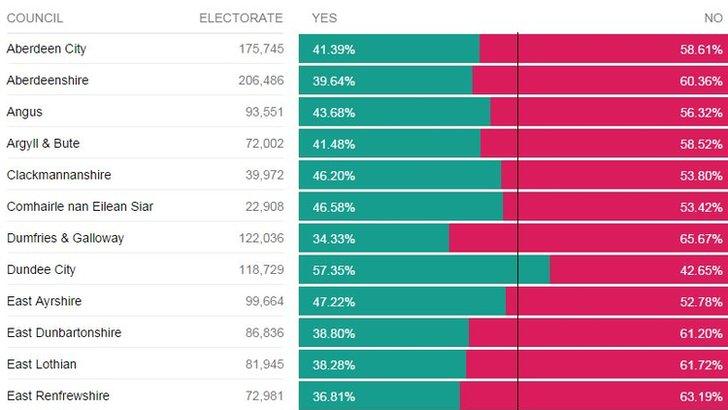
Visit our Results Page for a full graphic break down of the independence referendum.

At the counts
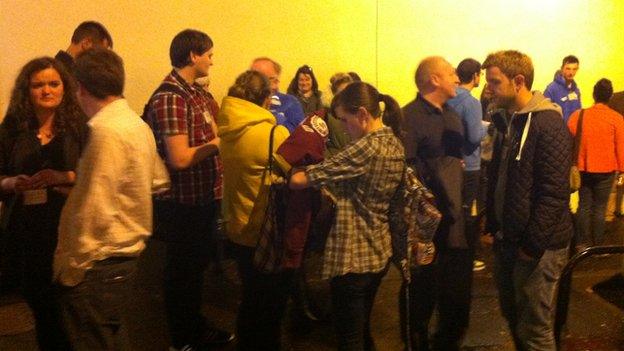
The Dundee count was evacuated twice when the fire alarm sounded
Police said they were investigating 10 cases of suspected electoral fraud at polling stations in Glasgow.
In Dundee, the count was suspended twice due to fire alarms.